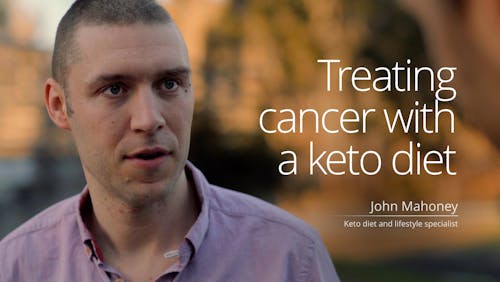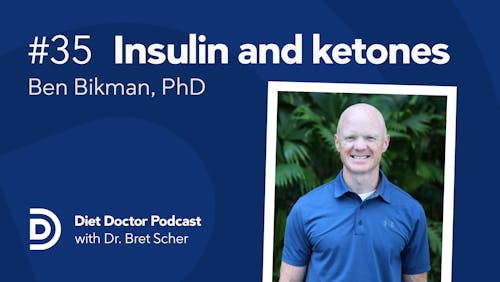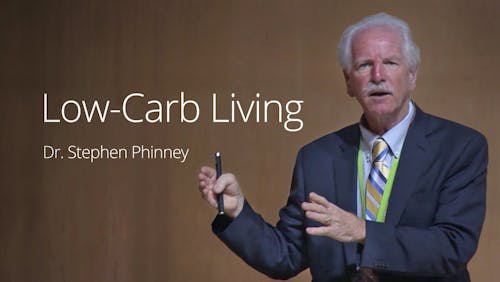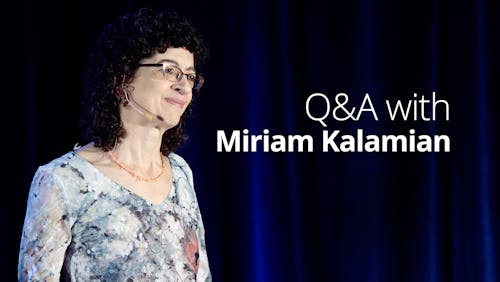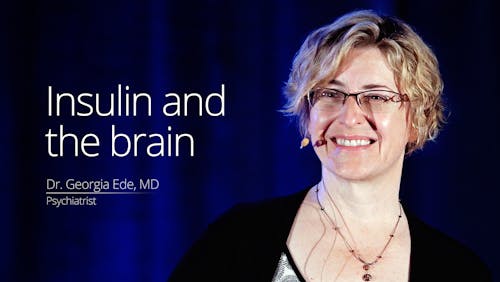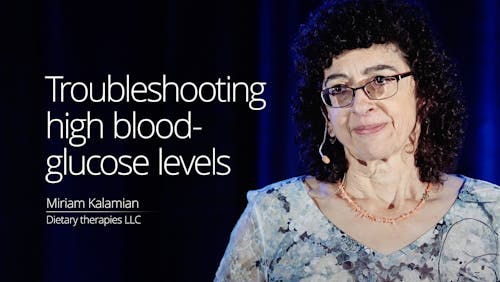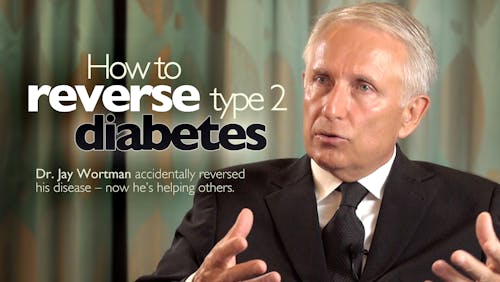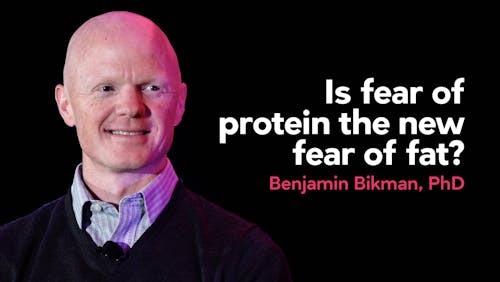Ketogenic diet for mental health: Come for the weight loss, stay for the mental health benefits?
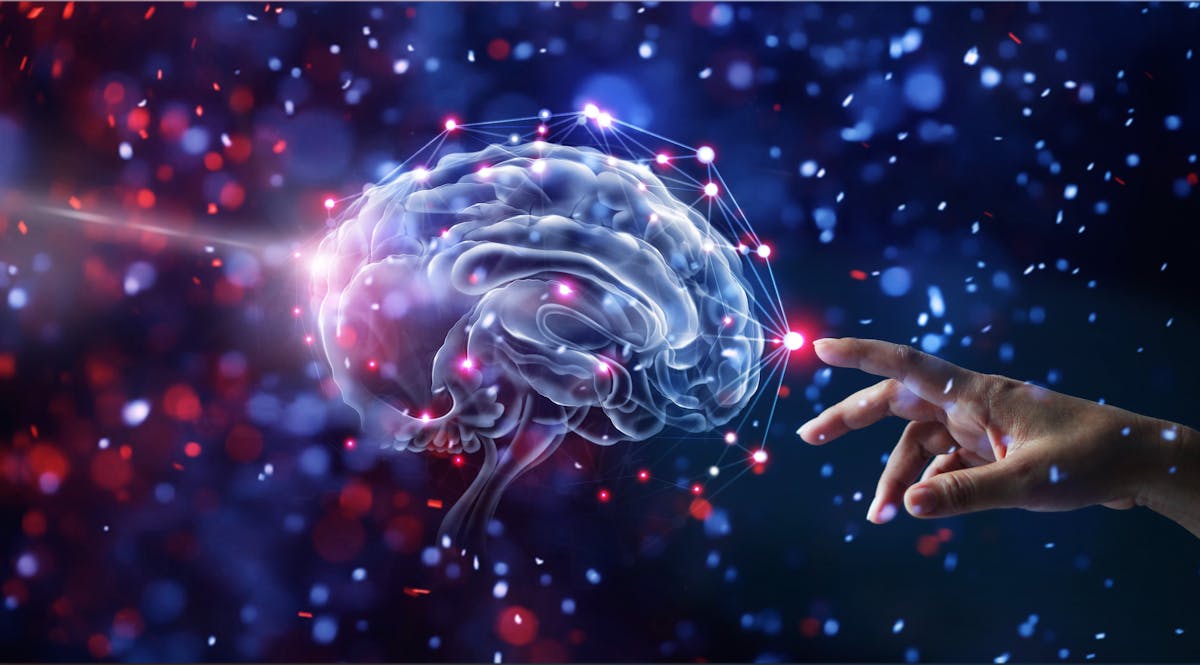
So the Oslo-based software technician, 28, combined a ketogenic diet with intermittent fasting. He cut out all sugar, fruit and refined or starchy carbs, eating primarily meat, fish, eggs, nuts and above-ground vegetables. A favourite dish of his is a special Norwegian reindeer stew called Finnbiff.
Most days he eats during a three-hour window, usually a small afternoon snack like beef jerky and then his evening meal.
“It felt right. It was easy,” he says. Over the past year he has lost more than 140 pounds (63 kilos). He feels and looks great.
Another welcome change occurred: his rapid cycling bipolar II disorder became much more stable and manageable. This form of bipolar disorder includes having four or more quick transitions between depression and hypomania (moderate elevation of mood and anxiety) within a year.1
While Hessen still had five “mood cycles” in 2017, all of them were easier for him to handle.
“My cycles are much milder now,” he says. “My elevated moods are more predictable, and I can still sleep properly and focus my extra energy when elevated. My depressions are less intense, and when depressed I can still be interested in my hobbies and friends. Everything is much more predictable and easy to deal with.”
In short, Hessen came to keto eating for the weight loss, but he is staying for its positive impact on his mental health.




He was diagnosed in 2014 with bipolar II disorder, a milder but still serious form of bipolar disorder, when he was working in Finland and suddenly began rapidly shifting between hypomania and depression almost weekly. He feels now that the condition has likely been with him for most of his life.
“I have had depressions for as long as I can remember, from the age of three or four,” he says.
He posts regularly on ketogenic forums on Reddit, sharing his experience with others who are contemplating doing the diet for mental health reasons.
“I am always really careful not to raise any false expectations. The diet is by no means a cure for the chronic illness that bipolar is. However, the diet is a great tool to help manage it,” he says.2
Hessen is not alone. Reddit and other social platforms have comment threads in which people on the ketogenic diet report improvements for anxiety, depression, bipolar disorder and even schizophrenia.
Can a ketogenic diet help prevent, reduce or better manage some mental health conditions? While clinical research in humans to date is slim, a growing body of research on ketones’ impact on brain function — and a large number of anecdotes — suggests that it just might.3
Poor mental health: An increasing global issue
In 2014, a large review found that one in five people had experienced a mental health condition within the past year, and nearly one in three (29%) had at some point in their life.4 Since 2005, rates of depression in the US have increased significantly.5 What’s more, depression now affects roughly 280 million people globally and is a leading cause of disability worldwide.
Those with mental health conditions have higher rates of physical illness and premature mortality, with lifespans shortened by an estimated median of 10 years.6 People with mental health conditions also have higher rates of and worse outcomes for chronic conditions such as cardiovascular disease, diabetes, and cancer.7
Dr. Georgia Ede, a US psychiatrist with a passion for food’s impact on brain health, feels there is a strong connection between rising rates of mental distress and the obesity and diabetes epidemics.
“Why should the brain be any different than the rest of the body?” says Dr. Ede, who has her own website Diagnosis Diet, and is featured in popular videos at Diet Doctor on low-carb for mental health and Alzheimer’s disease.
“I believe the decline in mental health around the world has a lot to do with the decline in the quality of our diet over the last 75 years,” she says.Dr. Ede believes the two main driving factors for brain distress are high consumption of refined carbohydrates like flours, baked goods, cereals, fruit juice and sugar, as well as refined and processed vegetable and seed oils.8
“What do we know about those ingredients? We actually know a lot,” says Dr. Ede. “Both those ingredients (refined carbohydrates and refined industrial oils) may promote inflammation and oxidation.”9
However, the topic of vegetable oils and inflammation is controversial. A systematic review of randomized controlled trials (the highest-quality evidence) found no evidence that linoleic acid, the main omega-6 fatty acid in vegetable oils, increases inflammation, at least in healthy people.10
Nonetheless, according to Dr. Ede, “Many mental health disorders are very strongly linked to inflammation and oxidation, just like many physical illnesses are.”11
Cutting out refined carbohydrates via a low-carb or ketogenic diet may improve mental health, just as doing so can treat diabetes and promote weight loss, she notes.
Powerful anecdotes12
What has happened to individuals diagnosed with serious mental health conditions who have adopted a low-carb or ketogenic diet? Some of the stories are inspiring, while other people have not seen a strong, lasting result.
“I feel better than I can ever remember,” said Scheto, 34, diagnosed with schizophrenia in his late teens, who was amazed by the ketogenic diet’s impact on his brain. “My brain is firing better than it has in years, but astonishingly the symptoms (voices) have lessened by what must be 90%. My brain is silent again and I can concentrate.”
The Diet Doctor site also has received a number of testimonials. Symptoms of bipolar illness improved in Asa, Sharon and Allison. Depression and/or anxiety eased for Tim, Kara and Tonya.
However, Adam, 37, of Atlantic Canada, tried both a keto diet and then a carnivore diet for more than two years. He contacted Diet Doctor to share his negative experience. He is now convinced both diets made his anxiety worse and triggered the onset of terrifying panic attacks, as well as ongoing dizziness.
“I just wish someone in all the threads and articles I’d read had said something like, ‘If you do not feel better within a few weeks, do not continue it,'” Adam says.
When it comes to clinical experience, some family doctors have seen their patients’ — and their own — mental health improve.
In 2017, Seattle physician Dr. Ted Naiman, who has been helping patients with low-carb and keto diets for over 20 years, described how his own obsessive compulsive disorder (OCD) resolved almost instantly on a low-carb diet.Over the years, Naiman says he has seen dramatic mental health improvements in his patients who adopt a low-carb or ketogenic diet. “Definitely bipolar, depression, anxiety, and OCD all seem to be much better on a low-carb diet,” he says.13
In 2009, Drs. Eric Westman and Bryan Kraft published a case study of a 70-year-old woman with life-long schizophrenia. Diagnosed at age 17, she had experienced daily visual and auditory hallucinations (skeletons that urged her to hurt herself) since the age of seven. She also had obesity, sleep apnea, hypertension, and gastro-esophageal reflux disease (GERD), among a number of other health issues.After only eight days on the ketogenic diet, the voices and hallucinations stopped. At the time of publication she had continued the ketogenic diet for more than a year, with no return of hallucinations, and had lost more than 22 pounds (11 kg).14
None of these testimonies surprise Dr. Georgia Ede. Not only was her own anxiety and depression alleviated on a ketogenic diet, she constantly gets comments on her blog from individuals with similar experiences.
Her 2014 column about low-carb diets and bipolar disorder has more than 100 comments from a number of people with diagnosed mental health conditions whose symptoms improved on a low-carb or ketogenic diet.
A March 2018 column by Dr. Ede, about managing psychiatric medications while eating a ketogenic diet, elicited this comment from Vicky French: “Since starting keto almost five months ago I’ve had some major improvements in depression and anxiety. I was on five psychiatric medications. With the help of my psychiatrist, I am off three medications.”15
“These sorts of personal stories shed light on the relationship between food and mood that research studies cannot,” said Dr. Ede. “If we wait for science to properly test these theories we will be waiting for years. You have nothing to lose by doing your own individual experiments,” she says.
The brain can use two fuels
As described in a recent Diet Doctor post about using a ketogenic diet for Alzheimer’s disease, it has long been known that the brain can use two fuels for its energy needs: glucose or ketones.16
Glucose comes from the breakdown of carbs you eat and is also made by your liver via a process called gluconeogenesis (literally “forming new glucose.”) Ketones are formed in the liver from the breakdown of fatty acids that come from fat in your diet and fat stored in your body.
Although the brain always needs some glucose, your liver will make all the glucose it requires even if you don’t eat any carbs.17 What’s more, researchers have reported that during fasting or strict low-carb eating, ketones can be used to meet up to 70% of the brain’s energy needs.18
Diet Doctor has a number of articles and videos about positive impacts of the ketogenic diet for neurologic problems like migraines, brain cancer, and traumatic brain injury.
However, in 2017, two psychiatrists reviewed the research base for psychiatric issues and noted that while promising, there isn’t enough evidence yet to recommend it.19
That stance may be evolving, as a 2020 review from another group of physicians concluded that although evidence is mixed, the ketogenic diet “has potential as a therapeutic tool to manage some aspects of poor mental health.”20
While the exact mechanisms of ketones for brain health are still unclear, a 2018 paper in the journal Neurochemistry summarized what is known: ketones used as fuel in the brain may enhance energy production, increase nerve cell growth factors, strengthen the signal sent between nerve synapses, and reduce brain inflammation.21
Clinical trials slim; basic science promising
Clinical trials that compare various diets’ outcomes among patients with mental health conditions are sorely lacking. However, it’s encouraging that among the more than 3,000 clinical trials registered at Clincaltrials.gov for schizophrenia, two are exploring the ketogenic diet’s impact on this debilitating chronic condition, with one of the trials including bipolar disorder.
One notable clinical trial of the ketogenic diet for schizophrenia occurred in 1965, after one of the authors noted that a carbohydrate binge preceded episodes of hallucinations and paranoia in some of his patients.
In the study, 10 women with schizophrenia followed a ketogenic diet for two weeks, along with their standard treatment of medication and ECT (electroconvulsive therapy), which led to a significant decrease in symptoms. A week after the women resumed their usual diets, symptoms returned.22
Despite this preliminary positive outcome, few researchers in the intervening 50 years have investigated the promising potential of the ketogenic diet in schizophrenia.
Epilepsy and bipolar disorder share features
Recent studies have confirmed that the ketogenic diet can be very effective for seizure control in some, although not all, people with epilepsy. It has been known for more than a decade that bipolar disorder shares a number of features with epilepsy.23Both conditions cycle, both are risk factors for each other, and anticonvulsant drugs used in epilepsy may potentially be effective in helping manage bipolar illness.24
Research is finding that behind many psychiatric and neurological issues — such as bipolar disorder, epilepsy, and migraines — are malfunctions in the work of sodium, potassium and calcium ion channels which pass the electric charge between nerve cells.25
Another nerve cell signaling chemical (neurotransmitter) called GABA (gamma-aminobutyric acid) has also been found to be disordered in bipolar disorder, epilepsy, and schizophrenia.26
A 2017 genetic study also found common pathways between bipolar disorder and epilepsy, including a disruption in the balance of excitatory and inhibitory nerve cells that affect brain function.27
While the science of nerve signaling and genetic mutations is incredibly complex, it makes sense that the ketogenic diet, which has been used successfully in epilepsy for 100 years, might be helpful in conditions that share some similar features.
In 2013, researchers published a case study of two women with bipolar II disorder who ate long-term ketogenic diets, one for two years and the other for three years.
The authors reported that both women “experienced mood stabilization that exceeded that achieved with medication, experienced a significant subjective improvement that was distinctly related to ketosis, and tolerated the diet well.” They also noted that the two cases “demonstrate that the ketogenic diet is a potentially sustainable option for mood stabilization in type II bipolar illness.”28
A word about wheat
Of all the high-carbohydrate foods that are eliminated on a ketogenic diet, cutting out wheat products — bread, cereals, baked goods, pasta — may be the most significant for mental health disorders.More than 50 years ago, researchers suggested there might be an association between wheat consumption and symptoms in some people with schizophrenia.29 Celiac disease is another condition with an established link to psychiatric and neurologic conditions.30 It is estimated that one to two of every 100 people has celiac disease, an immune disorder in which the ingestion of gluten in wheat, rye and barley destroys the lining of the small intestine, leading to a wide array of health problems.31 Another six out of every 100 people may have non-celiac gluten sensitivity.32 It’s been suggested that non-celiac gluten sensitivity may also be linked to mental health issues, although more research is needed in this area.33 In their controversial 2016 paper entitled “Bread and other edible agents of mental disease,” the authors discuss what they believe is a strong association between wheat products and mental illness.34 While they acknowledge that not everyone will see their symptoms resolve, they recommend a wheat-free diet as a trial for anyone with mental health issues.
Fortunately, a ketogenic diet is typically wheat- and gluten-free.
Managing medications while going ketogenic
Are you thinking of trying a ketogenic diet for your mental health? If you are not on any medications, you can begin right away.
If you are on medication, Dr. Ede recommends you work closely with your psychiatrist or mental health care provider. “Ketogenic diets cause profound shifts in brain and body chemistry rather quickly. These changes are almost always positive and healthy, but they can have a major impact on medication levels, dosages and side effects that require close medical supervision,” she says.
In a March 2018 blog post, Dr. Ede provides a range of very helpful tips for anyone already on mood-altering or psychiatric medications who wants to try a ketogenic diet, such as how to talk with your psychiatrist or mental-health provider and what laboratory tests the doctor should order to help monitor your response to the diet.
Most importantly, she provides details about some specific medications — notably specific antipsychotic medications, anticonvulsant medications, and lithium — that should be carefully monitored.
“The bottom line: if you take psychiatric medications, it is critically important to educate yourself, plan ahead, and work closely with your mental health providers before embarking on a ketogenic diet,” she says.Today Ole Jørgen Hessen finds that by following a keto diet and getting enough exercise and sleep, his moods are predictable and stable. In short, life is good. He is reaching out to friends more. “I even met a girlfriend and we have started a good relationship.” He plans to run the New York City Marathon in the fall of 2018, another first for him.
“This diet is a great tool that you can adapt. I highly recommend that people try it and give it three to five months before drawing any conclusions,” he says.
If you have tried a ketogenic or low-carb diet for mental health concerns, we’d love to hear about your experience.
Top posts and guides about keto
Top posts by Anne Mullens
Top keto videos
Mental health
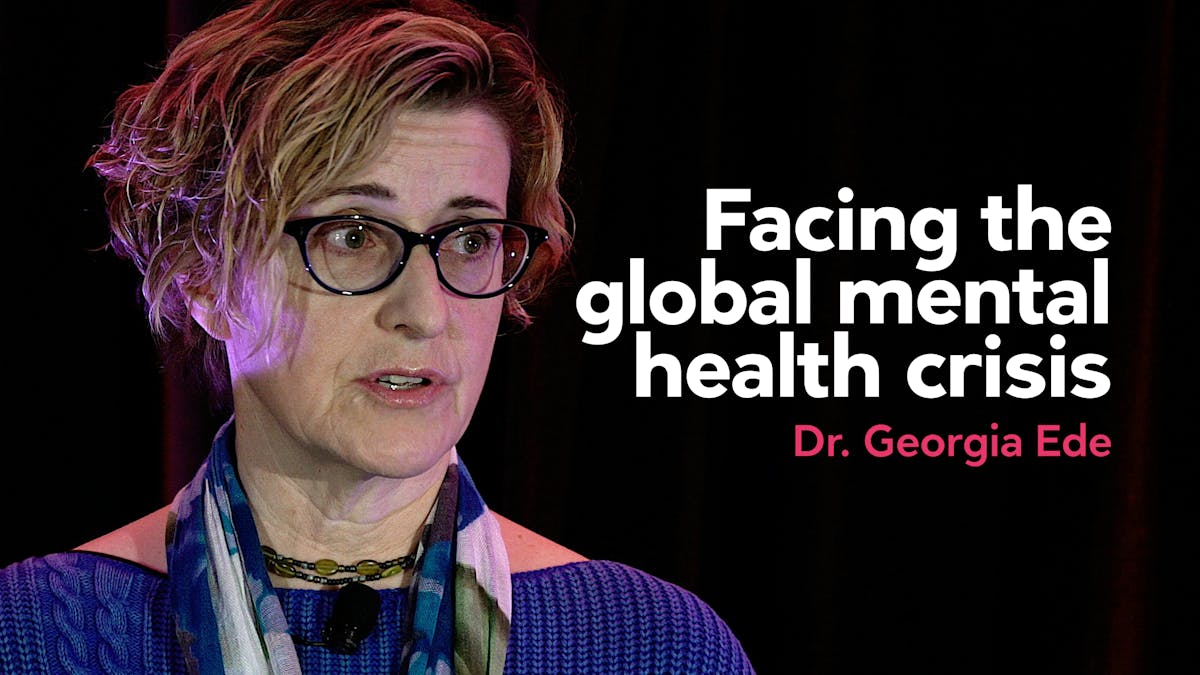

Ketogenic diet for mental health: Come for the weight loss, stay for the mental health benefits? - the evidence
This guide is written by Anne Mullens and was last updated on June 19, 2025. It was medically reviewed by Dr. Michael Tamber, MD on February 7, 2022.
The guide contains scientific references. You can find these in the notes throughout the text, and click the links to read the peer-reviewed scientific papers. When appropriate we include a grading of the strength of the evidence, with a link to our policy on this. Our evidence-based guides are updated at least once per year to reflect and reference the latest science on the topic.
All our evidence-based health guides are written or reviewed by medical doctors who are experts on the topic. To stay unbiased we show no ads, sell no physical products, and take no money from the industry. We're fully funded by the people, via an optional membership. Most information at Diet Doctor is free forever.
Read more about our policies and work with evidence-based guides, nutritional controversies, our editorial team, and our medical review board.
Should you find any inaccuracy in this guide, please email andreas@dietdoctor.com.
Psychiatry 2006: A review of bipolar disorder in adults [overview article; ungraded] ↩
Frontiers in Psychiatry 2017: The current status of the ketogenic diet in psychiatry [narrative review of mechanisms, case studies, and animal reports; very weak evidence]
The International Journal of Neuropsychopharmacology 2020: Induced ketosis as a treatment for neuroprogressive disorders: Food for thought? [overview article; ungraded]
Neuroscience and Biobehavioral Reviews 2018: Ketogenic diet as a metabolic therapy for mood disorders: evidence and developments [overview article; ungraded] ↩
International Journal of Epidemiology 2014: The global prevalence of common mental disorders: a systematic review and meta-analysis 1980-2013 [systematic review of observational studies; weak evidence] ↩
According to the most recent data, depression in the US affects from 6.6% to 7.3% of people overall, and as many as 12.7% of those younger than 18:
Psychological Medicine 2018: Trends in depression prevalence in the USA from 2005 to 2015: widening disparities in vulnerable groups [observational study; weak evidence] ↩
JAMA Psychiatry 2015: Mortality in mental disorders and global disease burden implications [systematic review of observational studies; weak evidence]
World Psychiatry 2011: Physical illness in patients with severe mental disorders. I. Prevalence, impact of medications and disparities in health care [overview article; ungraded] ↩
PLoS One 2019: Prediction of cardiovascular disease risk among people with severe mental illness: A cohort study [longitudinal study with RR < 2: very weak evidence]
BMC Medicine 2011: Mental illness related disparities in diabetes prevalence, quality of care and outcomes: a population-based longitudinal study [longitudinal study with RR < 2: very weak evidence]
Cancer 2013: Analyzing excess mortality from cancer among individuals with mental illness[cross-sectional study with RR > 2; weak evidence] ↩
The American Journal of Clinical Nutrition 2011: Low to moderate sugar-sweetened beverage consumption impairs glucose and lipid metabolism and promotes inflammation in healthy young men: a randomized controlled trial [randomized trial; moderate evidence]
Medicinal Research Reviews 2015: Postprandial dysmetabolism and oxidative stress in type 2 diabetes: pathogenetic mechanisms and therapeutic strategies [overview article; ungraded]
Journal of Nutrition and Metabolism 2012: Health implications of high dietary omega-6 polyunsaturated fatty acids [overview article; ungraded] ↩
Journal of the Academy of Nutrition & Dietetics 2012: Effect of dietary linoleic acid on markers of inflammation in healthy persons: a systematic review of randomized controlled trials [strong evidence] ↩
Journal of Neuroinflammation 2013: Neuroinflammation and psychiatric illness [overview article; ungraded]
Current Topics in Behavioral Neurosciences 2017: Evidence for inflammation-associated depression [overview article; ungraded]
International Journal of Molecular Sciences 2017: Neuroinflammation and oxidative stress in psychosis and psychosis risk [overview article; ungraded]
Psychiatric Clinics of North America 2016: Bipolar disorder and inflammation [overview article; ungraded] ↩
Nutrition & Metabolism 2009: Schizophrenia, gluten, and low-carbohydrate, ketogenic diets: a case report and review of the literature [case study; very weak evidence] ↩
[anecdotal report; very weak evidence]
Please do not stop medications on your own. Consult with your doctor before starting or stopping meds. See more in our guide on low carb with mental health medications.
↩Journal of Cerebral Blood flow and Metabolism 2017: Inverse relationship between brain glucose and ketone metabolism in adults during short-term moderate dietary ketosis: A dual tracer quantitative positron emission tomography study [nonrandomized study, weak evidence] ↩
BBA Clinical 2016: Glycogen metabolism in humans [overview article; ungraded] ↩
Journal of Cerebral Blood flow and Metabolism 2017: Inverse relationship between brain glucose and ketone metabolism in adults during short-term moderate dietary ketosis: A dual tracer quantitative positron emission tomography study [nonrandomized study, weak evidence]
Journal of Clinical Investigations 1967: Brain metabolism during fasting [nonrandomized study, weak evidence]
Critical Care 2011: Clinical review: Ketones and brain injury. [overview article; ungraded] ↩
Frontiers in Psychiatry 2017: The current status of the ketogenic diet in psychiatry
[overview article; ungraded] ↩Progress in Neuropsychopharmacology
& Biological Psychiatry 2020: Mental, emotional, and behavioral effects of ketogenic diet for non-epileptic neuropsychiatric conditions
[overview article; ungraded] ↩Neurochemistry International 2018: Neuroketotherapeutics: a modern review of a century-old therapy [overview article; ungraded] ↩
American Journal of Psychiatry 1965: A pilot study of the ketogenic diet in schizophrenia [non-controlled study; weak evidence] ↩
Expert Review of Neurotherapeutics 2010: Epilepsy and bipolar disorders [overview article; ungraded]
Neuroscientist 2007: Bipolar disorder and epilepsy: a bidirectional relation? Neurobiological underpinnings, current hypotheses, and future research directions [overview article; ungraded] ↩
Journal of Mental Health 2010: Anticonvulsants in bipolar disorder [overview article; ungraded] ↩
Frontiers in Genetics 2013: Major channels involved in neuropsychiatric disorders and therapeutic perspectives [overview article; ungraded]
Frontiers in Genetics 2013: A review of potassium channels in bipolar disorder [overview article; ungraded]
Cold Spring Harbor Perspectives in Medicine 2016: Role of sodium channels in epilepsy [overview article; ungraded]
Frontiers in Physiology 2016: ATP1A2 mutations in migraine: seeing through the facets of an ion pump onto the neurobiology of disease [overview article; ungraded] ↩
Bipolar Disorders 2013: Brain gamma-aminobutyric acid (GABA) abnormalities in bipolar disorder [case-control study; very weak evidence]
Journal of Magnetic Resonance Imaging 2015: Investigation of glutamine and GABA levels in patients with idiopathic generalized epilepsy using MEGAPRESS [case-control study; very weak evidence]
Frontiers in Psychiatry 2017: GABAergic mechanisms in schizophrenia: linking postmortem and in vivo studies [overview article; ungraded] ↩
Molecular Psychiatry 2017: Ankyrin-G isoform imbalance and interneuronopathy link epilepsy and bipolar disorder [mouse and test tube study; very weak evidence] ↩
Neurocase 2013: The ketogenic diet for type II bipolar disorder [case study; very weak evidence] ↩
The American Journal of Clinical Nutrition 1966: Wheat “consumption” and hospital admissions for schizophrenia during World War II. A preliminary report[cross-sectional observational study: very weak evidence] ↩
The Psychiatric Quarterly 2012: Neurologic and psychiatric manifestations of celiac disease and gluten sensitivity [overview article; ungraded] ↩
Clinical Gastroenterology and Hepatology 2018: Global prevalence of celiac disease: systematic review and meta-analysis [systematic review of observational data; moderate evidence] ↩
World Journal of Gastroenterology 2017: Non-celiac gluten sensitivity: all wheat attack is not celiac [overview article; ungraded] ↩
Autoimmunity Highlights 2014: Celiac and non-celiac gluten sensitivity: a review on the association with schizophrenia and mood disorders [review article; ungraded] ↩
Frontiers in Human Neuroscience 2016: Bread and other edible agents of mental disease [opinion; no evidence] ↩









